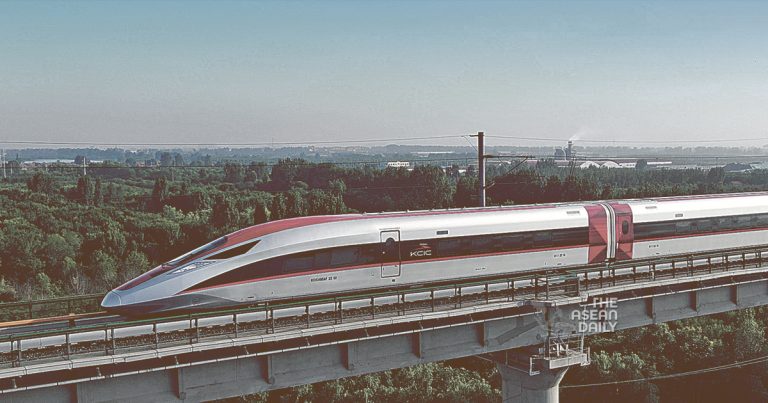14-8-2023 (JAKARTA) After years of delays, Indonesia’s highly anticipated high-speed rail is finally expected to launch early next month. The train service will connect the capital city of Jakarta to Bandung, located in West Java, reducing the travel time from three hours to just 45 minutes.
The new generation train is designed to reach a top speed of 420 km/h. However, for safety reasons, authorities have approved a slightly lower maximum speed of 350 km/h after conducting several successful tests at this speed.
To promote the new service, passengers will enjoy free rides for the first two months after the launch as part of an introductory campaign. Commercial operations are scheduled to commence in October.
Nuriqoh Toriqoh, a resident of Jakarta, expressed excitement about the new rail service, highlighting the convenience it will bring for events or urgent travel. “I’m very interested to try the train because of the reduced travel time. I think it’s worth it,” Toriqoh said.
The high-speed rail consists of eight carriages divided into three classes: VIP, business, and premium economy. With a capacity of 601 passengers, the majority will be accommodated in the premium economy class.
The project is operated by PT KCIC, a joint venture between Indonesian state-owned enterprises and a consortium of Chinese railroad companies. Originally slated for completion in 2019, the project faced multiple delays, resulting in cost overruns of over US$1 billion and increasing the total project cost by more than US$7 billion.
Emir Monty, PT KCIC’s corporate communications manager, cited land acquisition as one of the main challenges that hindered the project’s development. The process, involving 8,000 land parcels covering an area of 6.3 million hectares, was only completed in 2020. Additionally, the COVID-19 pandemic further delayed the construction process by two years due to travel restrictions that prevented Chinese construction workers from entering Indonesia.
The Jakarta-Bandung high-speed rail holds significance as it not only marks Indonesia’s first high-speed train but also Southeast Asia’s inaugural project of its kind. The initiative is part of China’s Belt and Road Initiative, aimed at financing global infrastructure development.
Observers view the railway as a symbol of the strong ties between Indonesia and China, with shared benefits in terms of prestige and technology transfer. The successful completion of this project is expected to pave the way for similar high-speed train ventures in the region.
Looking ahead, the Indonesian government is considering extending the rail project beyond the initial Jakarta-Bandung 142km line. There are plans for a second phase that would stretch the line to Surabaya in East Java, covering a distance of approximately 700 km from Jakarta. This expansion aims to balance efficiency and profitability, considering the significant investment made and the debt owed to the Chinese bank.
Experts believe that an efficient transportation infrastructure with improved connectivity can accelerate economic growth by facilitating the movement of people and goods across Indonesia. The Jakarta-Bandung high-speed rail project may serve as a model for driving similar ventures facing various challenges in the region.




